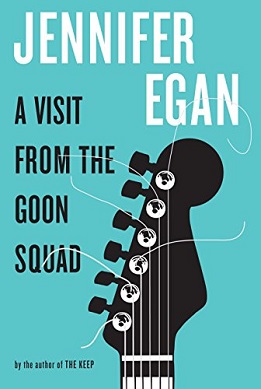Word of the day: ocellus : the eye-like spot in a peacock feather (thanks, wife!)
Though the year is still three and a half weeks from extirpation, it's a good time to trot out my list of the twenty books this year that I enjoyed the most, that I would re-read again in a heartbeat.
- Ripley Under Ground, Patricia Highsmith. Ripley in a deep mess again, entangled in art fraud. You never quite know how he's going to get out of it, but Highmith, with her slippery, supple guidance, has you rooting for him to.
- Everyman, Philip Roth. The author really nails these novellas; it's amazing how much vituperative, coiled anger and rawness he can summon it up in so few pages.
- Mr. Bridge, Evan Connell. A perfect novel. A (mostly) chronological series of incidents (130+) in the life of a buttoned-up, tight-lipped businessman over the course of three or four decades in mid-century Kansas City.
- Ragtime, E.L. Doctorow. The early 1900s as kaleidoscope. A ton of very specific characters, some of them real-life figures. A tour-de-force.
- The Forgotten Garden, Kate Morton. Lush and mysterious, an intriguing mystery, a great setting. Would make a first-rate movie.
- Under the Net, Iris Murdoch. The funniest book I read all year, a hilarious tale about a useless but opinionated man wandering around London, somehow involved with a famous dog of the silver screen; great writing, deceptive depth.
- The Privileges, Jonathan Dee. I found Dee's writing so perceptive, acute, and funny. And this book is sort of a miracle, really, in the sense that, as Jonathan Franzen (whose work Dee's reminds me of) said in his blurb, Dee gets us to empathize with a class of people it's almost impossible not to envy and hate: the filthy nouveau riche New Yorkers. Each character is well-drawn and very interesting, the dialogue superb, the details spot-on.
- A Visit From the Goon Squad, Jennifer Egan. Unimprovable.
- Easter Parade, Richard Yates. A master class in elegant unraveling. Yates' tale about two sisters and the decisions they make in this country from the their time as girls to grown-ups has dialogue so real it's almost tactile.
- The Cry of the Owl, Patricia Highsmith. Creepy, finding horror and mounting, agonizing tension in the mundane. A peeping tom finds that the young, disturbed woman he's watching turns out to be needier and more deranged than he is.
- Tigerlily's Orchids, Ruth Rendell. The English master with the "alien touch in the dark" up to her old tricks, taking you right inside the squeamish skins of various Londoners caught in moral crossroads.
- Back When We Were Grownups, Anne Tyler. Exceptionally well-written, with ridiculously acute observations of human behavior. It's impossible to read Tyler and not relate to at least half the characters. It's breathtaking how much we recognize.
- This Sweet Sickness, Patricia Highsmith. Maybe the best Highsmith ever. A man builds a house for the woman of his dreams but must then deal with the blobby husband she's married to.
- The Marriage Plot, Jeffrey Eugenides. I read one reviewer who was let down by the "weightless" subject matter of this follow-up to Middlesex, but when the writing is this good, with sentences as good as orgasms, who cares? I thought it was funny and true.
- A Patchwork Planet, Anne Tyler. Tyler knows the idiosyncracies and nuances of human behavior alarmingly well, even though she never seems to write about anything other than flawed, everyday Baltimore-ians.
- The Big Year, Mark Obmascik. Did what all great non-fiction does. Made me interested in the subject (birding), gave me a glimpse into the personalities involved in a way that allowed me to understand, appreciate, even respect them, entertained the bejesus out of me.
- The Prince of Tides, Pat Conroy. The more I think about it, despite all the pyschobabble, I really do love Conroy's big, flavorful, luscious descriptions, his affection for the south, the moral complexity, his gift for making even the minorest of characters come to rich life.
- Rodin's Debutante, Ward Just. I thought it was going to be about Rodin or his debutante. When it wasn't, I thought it was going to be about the rich, tough-as-nails husband of the woman who wanted to have Rodin do a bust of her. When it wasn't, I stopped caring. I just let let Just's sinuous, intelligent prose take me wherever, knowing I would be wiser, better informed, and moved if I did.
- A Death in Summer, Benjamin Black. Dublin noir, tough and stylish, with sentences that it would take decent or good writers years to come up with. Poetic and nasty, the hero Quirke (in his fourth mystery) achieving a sluggish dignity.
- Disturbing the Peace, Richard Yates. Modern life as nightmare. A NYC man can't stop drinking and can't explain why. He can't love his wife and he can't explain why.
What a list!
Today's bird? Ready for this name?
The dickcissel. A small songbird similar to a sparrow, with a stout, pointed bill, a short tail, and a rusty patch on it shoulders, the 'cissel is found in the midwest grasslands and hayfields in the summer, but one needs to travel to Florida, Mexico, or Central America to see it in the winter. The male has a black 'V' on its yellow chest. It can fly in migrating flocks of millions. The male is lazy, doing little more than eating and trying to show off for the ladies; the female builds the nest, incubates, feeds the young. Venezuelan farmers consider it an agricultural pest, as this bird feeds on stores of rice and sorghum. Don't poison them, Venezuelan farmers!






No comments:
Post a Comment